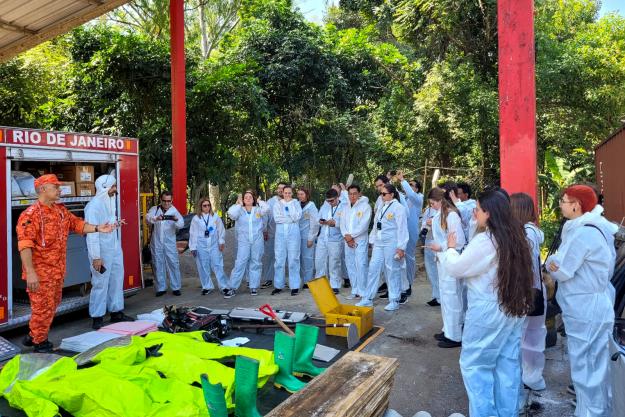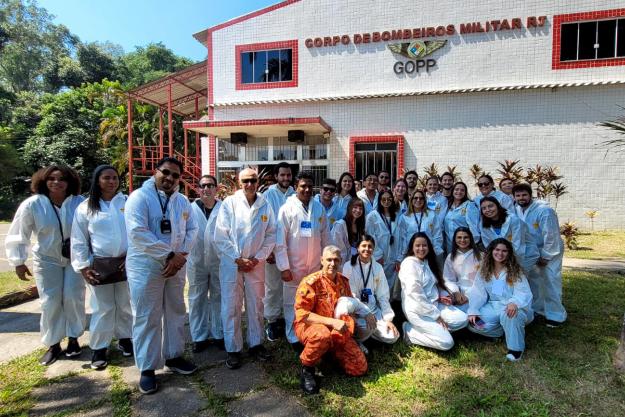The Organisation for the Prohibition of Chemical Weapons (OPCW), in collaboration with the Brazilian National Authority for the Chemical Weapons Convention (CWC) and with financial support from the European Union, organised a training programme for young individuals aged 18 to 24, from countries with developing or transitioning economies, to inspire them to take up careers in chemistry and chemical non-proliferation.
The programme took place from 8 to 11 April 2024 in Rio de Janeiro, Brazil. It focused on various topics related to the peaceful uses of chemistry, including chemical safety and security management, green chemistry, and ethics in chemical research. Participants were primarily university students enrolled in courses related to chemistry, chemical engineering, and other scientific fields.
The programme included lectures from experts working in national laboratories, academia, and international organisations; tabletop exercises, and a visit to an industry-leading petrochemical plant and the Fire and Civil Defence Centre in Rio de Janeiro. During the visits, participants learned about risk mitigation related to the potential misuse of toxic chemicals and saw a practical demonstration of chemical risk and incident management and response preparedness. Officials from Ministry of Science, Technology and Innovation of Brazil, the Office of the Ministry of Foreign Affairs in Rio de Janeiro, as well as from the Brazilian National Authority for CWC implementation attended the event.

Keynote addresses were delivered by Mr Luiz Shizuo Harayashiki, Manager for Business and Environmental Management for Brazilian Chemical Industry Association (ABIQUIM) and Mr Henrique Teixeira de Camargo, Chief, Logistics and Resources Section, AMBIPAR Group, Brazil, highlighting the industry's role and ethical responsibilities in chemical management.
The Chair of the OPCW's Advisory Board on Education and Outreach (ABEO) supported the expert deliberations at the event, discussing the role of education and outreach in preventing the re-emergence of chemical weapons, and sharing educational resources and best practices in promoting peaceful and responsible chemistry.
An important component of the training programme was an exploration of the intersection between gender and chemical disarmament. This segment showcased research on understanding gender-specific effects of chemical weapons. In addition, experts from the Brazilian CBRN Institute shared experience in involving youth in the dialogue on peaceful uses of chemistry.
The event included 14 sponsored participants from the GRULAC region, including from Brazil, Chile, Cuba, Guatemala, Mexico, Nicaragua, Panama, and Paraguay with nine further global participants participating online. Additionally, 10 Brazilian chemists and scientists attended as observers.

Background
As the implementing body for the Chemical Weapons Convention, the OPCW, with its 193 Member States, oversees the global endeavour to permanently eliminate chemical weapons. Since the Convention's entry into force in 1997, it is the most successful disarmament treaty eliminating an entire class of weapons of mass destruction.
In 2023, the OPCW verified that all chemical weapons stockpiles declared by the 193 States Parties to the Chemical Weapons Convention since 1997 - totalling 72,304 metric tonnes of chemical agents - have been irreversibly destroyed under the OPCW's strict verification regime.
For its extensive efforts in eliminating chemical weapons, the OPCW received the 2013 Nobel Peace Prize.






